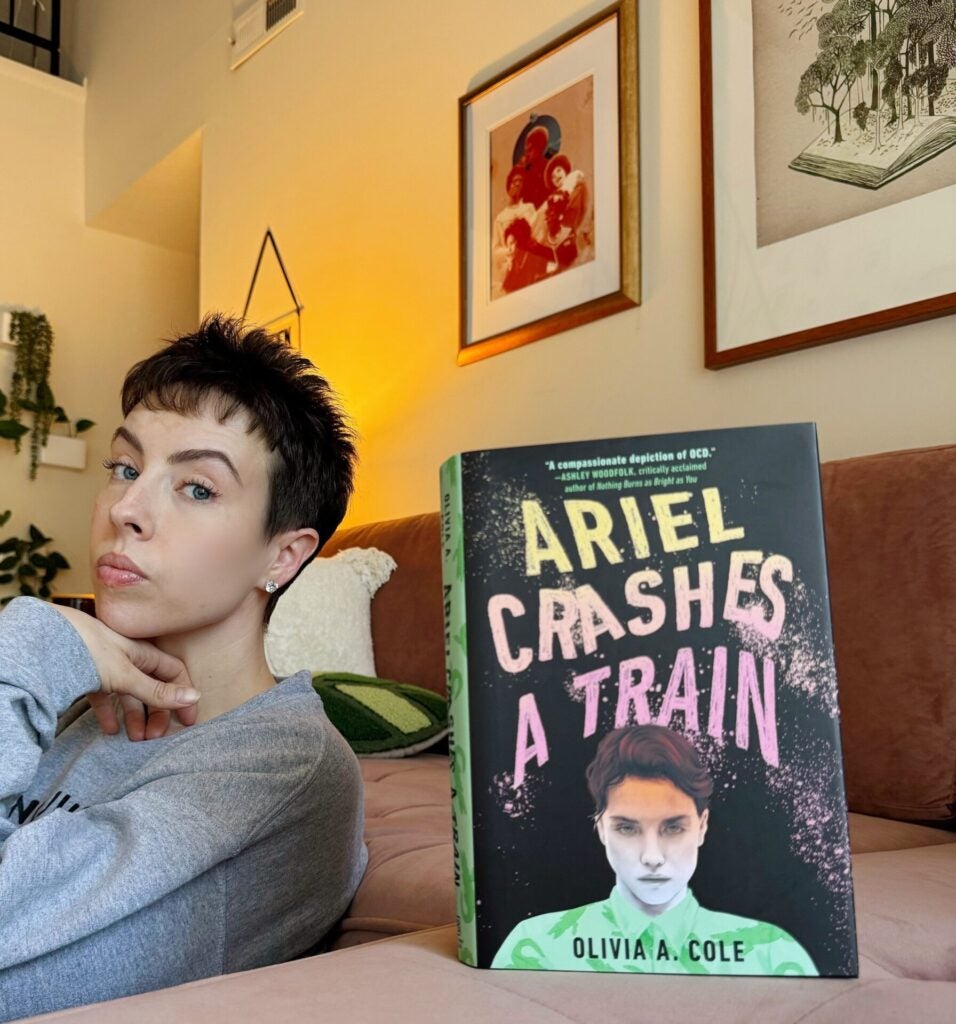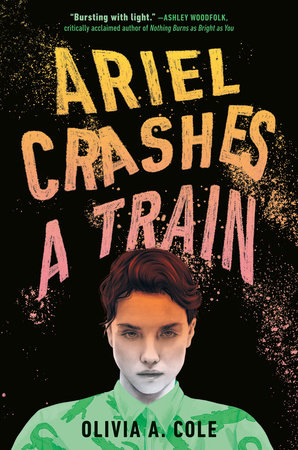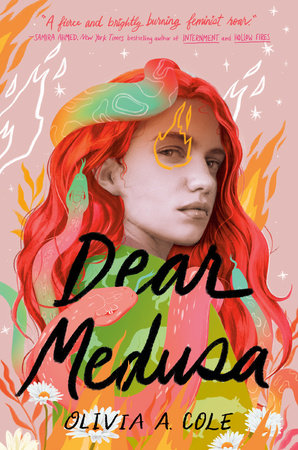
One of the things we love most about the YA community is the way so many authors share honest stories about difficult topics. In honor of Mental Health Awareness Month, Olivia A. Cole, author of Dear Medusa and Ariel Crashes a Train, shared this powerful personal story with us about neurodivergence, gender identity, and how Ariel Crashes a Train came to be.
Gender Is a Trap
by Olivia A. Cole
For as long as I can remember, I’ve thought about my brain and my body as two separate creatures. There are reasons for this, neurodivergence and trauma among them. Then comes the variable of gender: as a person who knew they were nonbinary from practically toddlerhood—though lacking the language to describe myself as such—my body often felt inconvenient. I longed to be just a brain floating through space.
Ariel Crashes a Train as a place for unlearning
As I explored Ariel’s story for this book, I first approached it with much the same thought: this was a book about OCD. A brain, and nothing more. But as I wrote and got to know Ariel Burns, a slow recognition began to creep over me. Ariel did not share my desire to be a floating brain: she was afraid of her brain. And unlike me, she had a comfort within her body that was only challenged by others’ perceptions of her as “too big” or “unfeminine.”
Memories unlocked
Many authors talk about feelings of catharsis that can arise when writing about painful subjects—I’ve had that feeling as well. But never have I considered a book as “therapy” when writing it until now. In learning about Ariel, I got much closer to memories of my childhood than I ever have. I may not have had comfort with my body as teenager and an adult, but I wasn’t always this way! I remembered the feeling of joy when people would ask me, Are you a girl or a boy? And I remembered the freedom of refusing to answer, refusing to pick. That joy was stripped from me as I got older, faced with the violence of gender “rules” and the people (usually men, but not always) who would eagerly enforce them. I was in third grade the first time a boy threatened to beat me up for not telling him my gender. I slowly learned to hide in a shoddy costume of girlhood.
Never either/or
Gradually the certainty I felt as a young child was replaced with confusion and self-loathing. I couldn’t remember what it felt like to be at home in my body. Sexual abuse in middle school contributed to these feelings, and the gap between body and brain widened more and more. In writing Dear Medusa, I began to make connections. But it wasn’t until writing Ariel Crashes a Train that more came into focus: this society demands conformity—funny in a country that prides itself on individualism, isn’t it?—and that demand had beaten me into unknowing myself. It wasn’t that I had a problem with my body, it was that the connection I had to it had been severed. I slowly began to realize that I didn’t actually want to be just a floating brain! My brain—even the scary parts of it—is part of my body. A wedge had been driven in when I was told by our society that who I thought myself to be was wrong because a doctor looked at my body and said girl. And I’d been questioning this beautiful vessel ever since.
Gender is a trap
It took getting to know Ariel to have this realization: I don’t have a problem with my body. As a child I loved how it carried me where I wanted to go. The problem was given to me, forced on me at a young age. Ariel says at one point: “I don’t want to be smaller. I just want you to not want me to be smaller.” Gender was a trap I was shoved into. And like Ariel, I’m slowly getting free.






